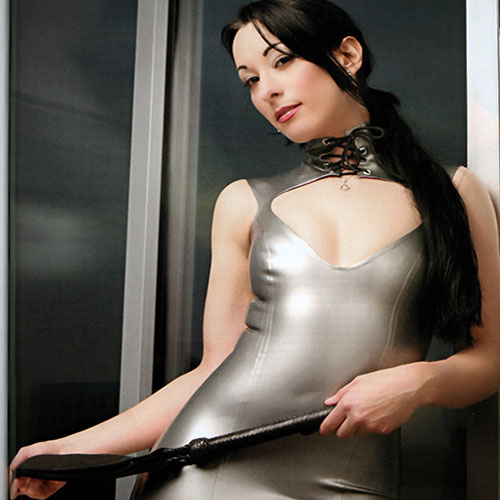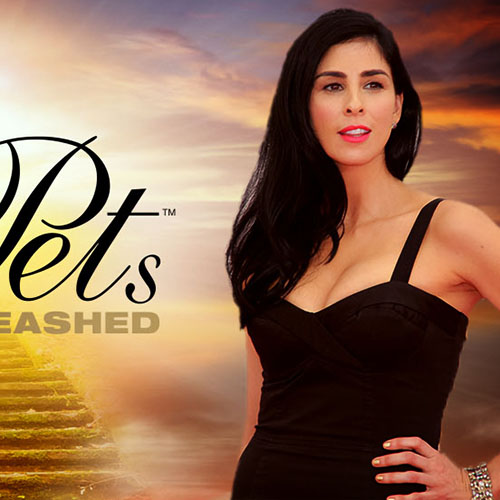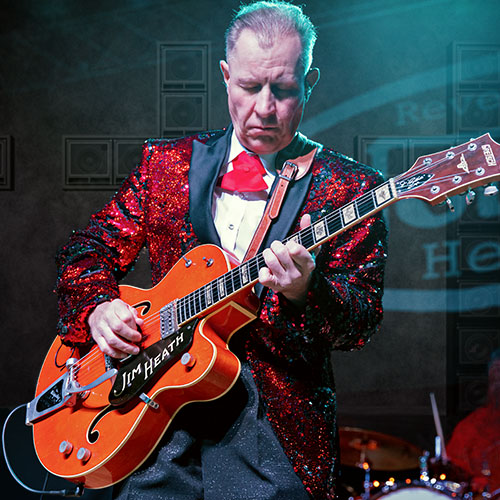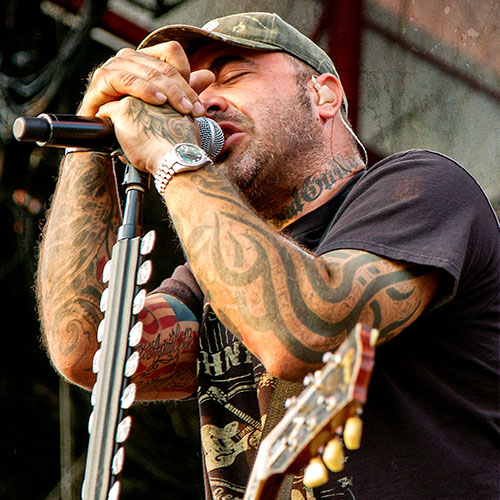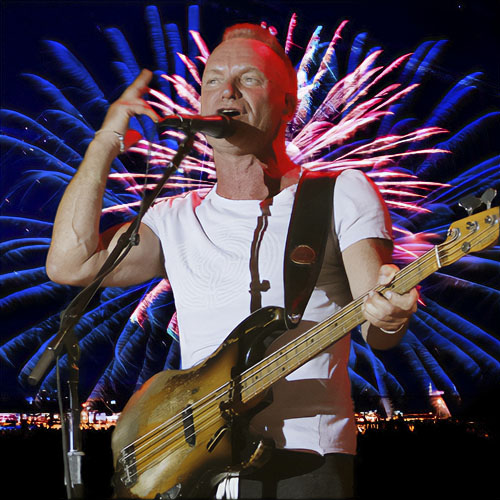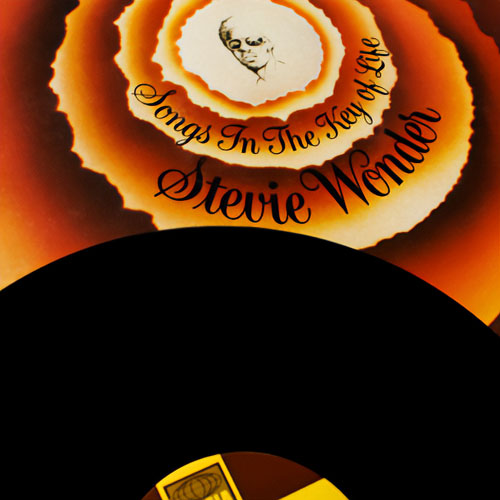Shooter Jennings offers a stark and fascinating portrait of an artist in search of the truth — let the chips fall where they may.
Son of an Outlaw, Shooter Jennings
Waylon Albright Jennings, more famously known as Shooter, is the 34-year-old son of two country-music legends: Waylon, of course, and Jessi Colter. Shooter enjoyed a happy childhood and grew up revering his parents, but his pedigree comes with expectations, both from himself and from his fans. And there’s the rub. In an exchange that’s astonishingly frank, given we’re in the age of management-approved sound bites, Jennings explains the circuitous direction of his career, and talks not only about his extraordinary albums — Black Ribbons, as well as the more recent Family Man and The Other Life — but why he’s so misunderstood.
There’s so much growth from your early albums to these last two. What contributed to that?
SHOOTER: I think it’s growing older, and musically, I take songwriting and the composition of music very seriously. There was a great documentary on Bruce Springsteen called The Promise. In that, he said that when you start doing music, you’re operating on your instincts alone, and you have to trust those. And the more songs you write, you start to write through musical experience, and that takes over. That’s the same way with me. I’m not saying I do it as well as he does, but I do it a lot better than I did when I was younger.
The turning point in your work was probably the Black Ribbons album.
SHOOTER: Yeah, it’s a giant piece of the puzzle, probably the most vital piece, if you’re looking at my whole career. Because it’s such a departure. Put the O Back in Country and Electric Rodeo, the first two records, I could put those together as a natural progression. The Wolf, I was a little more lost, so I kind of set it aside by itself. Black Ribbons is a concept record. Stephen King is on it, and the sound is different from normal, and it’s kind of a fictional band. That’s the album where all my frustrations came out, but anyone who knew me as a child and heard it said, “That’s the Shooter I know.”
Why is that?
SHOOTER: As a wide-eyed young man I moved to L.A., and I had a rock band. Our dream was to get signed by a major label and get famous and successful. And it didn’t happen that way. That started as an industrial, David Bowie-style band [and became] more of a riff-rock band, as people came in and out. When I released Put the O Back in Country, I’d been in L.A. for a long time. I hadn’t been in Nashville at all. I was aware of what was going on down there, but I wasn’t part of it. And I didn’t think the record would be embraced in any nature by Nashville. It was, so I felt like it was a very innocent offering, because there wasn’t any influence. In Electric Rodeo, I was trying to bring more psychedelic and hard rock into the country that we were getting a little success with. In my dream, we would have made an influential change in popular country music by bending it toward better musicianship and better song crafting, so real artists could break through. That didn’t happen.
At the same time, Hank [Williams] Ill’s Straight to Hell came out. And they weren’t going to let us come in and run ’em up the charts. Country radio had gone so far in this wholesome marketing-to-housewives world that rebellious, edgy 25- and 30-year-olds weren’t going to fit.
Then we did The Wolf. A lot of people I respect say that is their favorite record of mine. But my guitar player and I were having a lot of problems with each other, and to me that was the sound of the band breaking up. And within a month or two, I was on tour, and I had replacement players, and I was depressed. It was the worst phase of my life.
What inspired Black Ribbons?
SHOOTER: Well, I was hurt, I was angry, and at the same time I had thrown myself into this other world of Coast to Coast A.M., the [paranormal-themed] Art Bell [radio] program, since I was about 15. Now it’s [hosted by] George Noory. I was moving my family from New York to L.A. to start recording my next record, and we did a lot of night driving, and I always tuned in. And all the while, just to set the mood, literally driving days and days across the United States, I listened to the only CD I had, a Blue Oyster Cult “greatest” collection that I’d bought at a truck stop because it had the song “Astronomy” on it. I always loved the drama of that song. So I had that, and then I would listen to George Noory. One night [British conspiracy theorist] David lcke was on, and he talked the whole four hours about this crazy thing, the Illuminati, and these reptiles. It intrigued me so much that I bought books on it and started drawing lyrical ideas from it. I already wanted to do a record that played like a radio show, and that’s Black Ribbons. I got Stephen King to play the talk-radio host, this guy who’s in his last year of broadcast before the government regulates and approves all the air-waves. He’s going off the air, and it’s his last night, and his choice is to play songs by this band called Hierophant all night and talk and have a drink. Basically, that’s the album. It was all crazy, and we went through a lot, like getting stuff thrown at us at shows.
Why did people throw things at you?
SHOOTER: When we went on tour, we played the entire record with the Stephen King breaks. And then we did 45 minutes of the hits. But we started with this crazy record, and a lot of it is really rock music. Some of it is kind of Pink Floyd-y, and some of it is kind of Nine Inch Nails-y. And Stephen King keeps painting the picture of the way it is at this period of time. He says there’s this park where people used to hang out, that it’s just a tent city for soldiers, and that government security agents are locking down the city. He says, “With all your guns and your grenades and graceless glory,” and a drunk guy in the audience thought I was talking shit on the troops. He started screaming, “He doesn’t support the troops!” and he went outside and marched up and down the street. Another guy threw a beer can at me. It hit my guitar while I was playing. So there were some weird moments. And I felt pretty beat up after that. But at the same time, I’ve got this whole other fan base that came out of that, and those are the people that’ll stick with me for life.
How did you come to do Family Man and The Other Life?
SHOOTER: At the time, I was listening to lots of John Prine and Harry Nilsson. I’d really fallen in love with both of them, and also Steve Young, who wrote “Lonesome, On’ry & Mean” and “Seven Bridges Road” and “The White Trash Song.” Steve and I were writing back and forth, talking about songwriting, and he built my confidence back up to attempt to write simple songs. I was back in New York then, and I basically demoed up 20 songs and went into the studio, and 15 of ’em got completed. And when we were done, it looked like one big cool album. But a friend of mine convinced me that I should cut it into two albums, just because in this day and age, you need to be putting out albums quicker. And at the time, I was going through a big transition in my life. I was splitting up with the mother of my children. I don’t like to get into that stuff very much, but at the time, that was affecting me. And there was a part of the album that was full of love for my family, and there was another part that reflected the heartbreak and the anguish of what we were going through in the relationship. And that was some of my favorite stuff. That was “Wild and Lonesome” and “The Other Life” and “The White Trash Song.” But I put that stuff aside and focused on the sweet, more gentle stuff, and that was Family Man. I was really proud of that record, and it definitely had some things to say. But I knew it was a simplistic record compared to what The Other Life was going to be.
I sat on these other songs until I had time to fill in what I thought was missing. And that’s where “The Gunslinger” and “The Low Road” and “Mama, It’s Just My Medicine” all came from. And I’d cut “Outlaw You” along the way. All those came from a different place, a more energetic place. And I really wanted to get some of that psychedelic stuff back in there, and make it more experimental, and kind of a transitional record.
“The only way that country would become cool again is the Nirvana effect. That [new great artist] would have to come in and instantly make everything single thing that’s popular uncool.”
So that’s why we get “The Flying Saucer Song.”
SHOOTER: Yeah, the Harry Nilsson song, which I got tattooed on my back in the movie. For real, though. I had that much commitment to the lyrics. It’s basically about this guy who sees this ball of light stream across the sky while he’s looking for light in the darkness. And to me that said, “No matter what’s going on, you have to do it, and you have to do it with meaning, because there’s always someone watching you who is going to take something from what you’re doing and be inspired by it.” It was like a mantra for me. And it represented a lot of this album.
Your staggering film Interpretation of The Other Life places you on the road, beseeched by a mysterious lady, and running from your own demons. Talk to us about that.
SHOOTER: Well, there’s a lot in that to be said. At first. we were showing it only at VIP shows. Now we’re showing it when the doors open if we’re headlining. When we were showing it to VIPs, everybody wanted to know, “What’s it about?” And ultimately, I’m not really comfortable saying. Because there are things that I take away from it, and what I think it means. But it was interesting listening to other people find different meaning in it, too.
It’s very evocative of Stanley Kubrick’s Eyes Wide Shut. It’s got that dreamy, nightmarish quality.
SHOOTER: Yeah. It’s just [about] making rash decisions because you can’t focus in your life because things are all falling apart. Those decisions take you to these places, and then how do you get out of them?
The song “A Hard Lesson to Learn” references George Jones, who died not long ago, and your dad Is gone, and Merle Haggard and Ray Price are ailing. What will the loss of that generation mean to country music?
SHOOTER: It’ll mean that all eyes will be forced on the youth. I’m very inspired by this new Daft Punk record. It’s an amazing artistic offering. Pure. And it’s getting huge success. That’s a really good thing for music, because if something real is blowing up, it means that doors will open.
You don’t have a lot of patience for most popular music.
SHOOTER: No, I don’t, and I don’t have a lot of faith in it. I do believe that there’s going to be another great artist, someone who will come along and change the tide. But the only way that country would become cool again is the Nirvana effect. That act would have to come in and instantly make every single thing that’s popular uncool overnight. Because there’s no way that Jason Aldean’s “1994” song — I mean, I’m not trying to pick out people to shit-talk about, but there’s just no way that stuff like Luke Bryan’s “Spring Break” could coexist with something that was extremely real and extremely popular.
You played the Grand Ole Opry not long ago, and sang “Outlaw You,” which is extremely critical of the poseurs in country music. What was the reaction?
SHOOTER: It was sold-out that night, and Kacey Musgraves and I had the longest lines to sign stuff, which I was very surprised about. Because as of late, every time we played in Nashville, it’s been a half-full room. But they had billboards up and down the highways about me being on the Opry. And I went on there with my mom, and had Billy Don Burns come up and do a song, and then I did “Outlaw You.” They were screaming for it. They were loving it. There wasn’t a negative response to it. Everybody knows what I’m tryin’ to say.
Your manager thinks the Opry won’t have you back.
SHOOTER: I think they’ll have me back, because I brought my mom on first, and they give her a lot of respect, and she’s the real deal. And also, I’ll tell you another thing: That day an article came out, and for the first time, I had started saying how it was. My point was, the insincerity of pop music is unacceptable, and it’s unlistenable. And so this came out in The Tennessean that day, and all the old motherfuckers — with all due respect to the great artists that perform on the Opry — came up to me and said, “That’s how I feel.” And that meant a lot, because I was just like, “Fuck it.” And that’s how I’d been: “Fuck you, and fuck them.”
Meaning?
SHOOTER: I have a very conflicted relationship with my fans. Half of them don’t know me, but think they do and wan to argue with me about what I should be doing. And those are generally the ones who are the die hard Waylon [fans]. Look, I love my dad, man. He was my hero. But the Waylon that they think they know is different. He’s gone. And the music that he did was not accepted as country music when it was first coming out. And he got a lot of shit about it, with old guys telling him it was rock ‘n’ roll. But with me, when I go somewhere, they have a preconceived notion of me, and it’s related to him. As I’ve gotten older, I’ve seen this over and over, so I really don’t trust my fans. I trust my fans that liked Black Ribbons a lot, and I trust the fans I’ve gotten to know. But just recently on Facebook, I wrote a letter about my rapper nephew, who did an album that has a lot of Waylon stuff on it. I helped him with it. I’m very proud of him. He’s in prison, and he’s going to be out before too long, and he’s doing really well, even though he’s in prison. And he was like a brother to me. So I wrote a thing talking about him and two of my other nephews who I was proud of, and also about this Daft Punk record and how much it affected me. This one guy wrote, basically, “As a big fan of Shooter’s, hearing him talk about a rapper, even if he is related, and about electronic music, concerns me. He should stick to what he knows. That’s where he belongs.” And if you say that kind of thing, man, you don’t know me at all.
You’re going to be producing a biopic of your dad, and supervising the music for it, too, right?
SHOOTER: Yes. I’m excited about it. I’ve been very protective over that. People have tried to come in and start having meetings about it, and I said, “No, that’s my thing.” Because I want it to be cool. And I finally found a producer, someone who came through a family friend. Ultimately, she brought a writer. I had an idea, and this writer and I riffed, and he came up with a concept that was just brilliant and matched what I was thinking. It’s exactly what I was hoping for, and more. He’s in the process of writing the script now.
I hear you want Johnny Depp to play your father.
SHOOTER: Maybe. There’s a masculinity with my dad that needs to be a natural thing. And I think in all these movies they get the brooding thing, but those guys were goofy, Johnny Cash and my dad. Whoever plays him has to naturally have that masculinity, and he’s got to be intimidating and yet so charming, you know? He has to be able to let loose, and just be cool. I think Johnny Depp is an amazing actor, and he could probably knock this out of the park, but I’m not 100 percent convinced. It would be worth a shot to see it.
You don’t want to act in it, even after playing your father in Walk the Line?
SHOOTER: No, I don’t want to act. That’s not my thing. But behind the scenes — film directing, writing scripts, editing — I’m into all of that, way above touring. That’s my favorite thing: being in the studio, making new things, working on creative projects, creating something out of nothing.
Your manager says, “As a person, he’s completely nuts.” Of course, he meant that in an affectionate way. But here’s the question: How nuts are you?
SHOOTER: How nuts? [Laughs] I think I’m pretty nuts. But I don’t want to flounder around trying to tour 250 dates a year, have a record, balance seeing my kids, and be home with my wife. I want to make records that have an impact on people, and I want to do visual counterparts of those. I want to operate on a different level than I’m operating on, and it’s not because I want to be famous or rich. It’s because if I’m aiming high enough, a lot more people can see that ball of light.
When we get into this more “modern” Legacy titles, you can sometimes find people profiled who are not, y’know, ancient now. Although stories of the offspring of famous (and wildly talented) parents do not often turn out wonderfully, as you probably know. In Shooter Jennings case, though, the student may at some point surpass the teachers. You visit the site, of course, maybe even memorize the lyrics to D.R.U.N.K. should you wish. For those versed a bit in country music, though, listen carefully and you can hear both Waylon and Jessi in Shooter’s performances. If you are (sadly) unfamiliar and undereducated on the topic, just know he looks primed to take full advantage of one of the greatest country philosophies of all times. Next time someone criticizes you, just explain calmly, “I’ve always been crazy; it’s kept me from going insane.” Shooter Jennings learned that one very early.

















